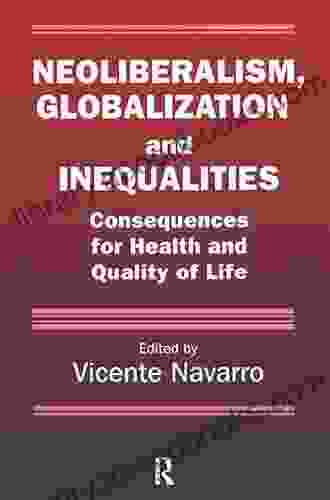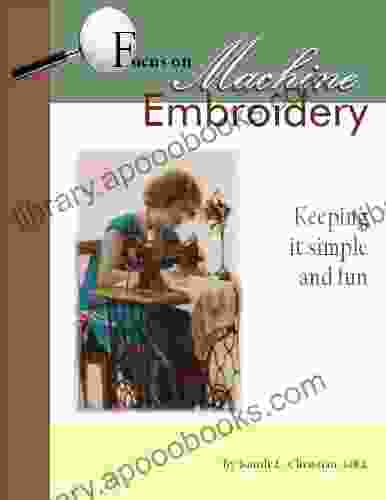The Limits of Judicial Power

A Comprehensive Guide to Understanding the Role of the Courts
The courts play a vital role in a democratic society. They interpret the law, resolve disputes, and protect individual rights. But what are the limits of judicial power? How far can courts go in shaping society? And what happens when courts overstep their bounds?
4.8 out of 5
| Language | : | English |
| File size | : | 767 KB |
| Text-to-Speech | : | Enabled |
| Screen Reader | : | Supported |
| Enhanced typesetting | : | Enabled |
| Word Wise | : | Enabled |
| Print length | : | 368 pages |
In this comprehensive guide, a team of leading legal scholars explores the limits of judicial power. They provide a historical overview of the role of the courts, examine the theoretical foundations of judicial power, and analyze the practical limits on what courts can do.
This book is essential reading for anyone who wants to understand the role of the courts in a democratic society. It is a valuable resource for students, lawyers, judges, and anyone else who is interested in the limits of judicial power.
Table of Contents
- Chapter 1: The History of Judicial Power
- Chapter 2: The Theoretical Foundations of Judicial Power
- Chapter 3: The Practical Limits on Judicial Power
- Chapter 4: Judicial Overreach
- Chapter 5: The Future of Judicial Power
Chapter 1: The History of Judicial Power
The history of judicial power is long and complex. The first courts were established in ancient Greece and Rome. These courts were primarily concerned with resolving disputes between private citizens. Over time, the role of the courts expanded to include the interpretation of the law and the protection of individual rights.
In the United States, the courts have played a vital role in the development of democracy. The Supreme Court has ruled on some of the most important issues in American history, including the right to vote, the right to free speech, and the right to due process of law.
Chapter 2: The Theoretical Foundations of Judicial Power
There are a number of different theories that attempt to explain the theoretical foundations of judicial power. One theory is that judicial power is based on the consent of the governed. This theory holds that the courts are legitimate because they are created by the people and are accountable to the people through the electoral process.
Another theory is that judicial power is based on the rule of law. This theory holds that the courts are legitimate because they are bound by the law and are not subject to the whims of the majority.
Chapter 3: The Practical Limits on Judicial Power
There are a number of practical limits on judicial power. One limit is that the courts can only enforce the law. They cannot make new laws or change existing laws. Another limit is that the courts can only decide cases that are brought before them. They cannot intervene in disputes unless someone has filed a lawsuit.
Finally, the courts are limited by the resources at their disposal. They have a limited number of judges and staff, and they cannot always handle all of the cases that are brought before them.
Chapter 4: Judicial Overreach
Judicial overreach occurs when courts exceed their authority. This can happen when courts make new laws, decide cases that are not brought before them, or interfere in the political process.
Judicial overreach is a serious problem because it can undermine the rule of law and the separation of powers. It can also lead to a loss of public confidence in the courts.
Chapter 5: The Future of Judicial Power
The future of judicial power is uncertain. Some experts believe that the courts will continue to play a vital role in democracy. Others believe that the courts will become less powerful as society becomes more complex and interconnected.
Only time will tell what the future holds for judicial power. But one thing is for sure: the courts will continue to play an important role in our society for many years to come.
The Limits of Judicial Power is a comprehensive guide to understanding the role of the courts in a democratic society. This book provides a historical overview of the role of the courts, examines the theoretical foundations of judicial power, and analyzes the practical limits on what courts can do.
This book is essential reading for anyone who wants to understand the role of the courts in a democratic society. It is a valuable resource for students, lawyers, judges, and anyone else who is interested in the limits of judicial power.
4.8 out of 5
| Language | : | English |
| File size | : | 767 KB |
| Text-to-Speech | : | Enabled |
| Screen Reader | : | Supported |
| Enhanced typesetting | : | Enabled |
| Word Wise | : | Enabled |
| Print length | : | 368 pages |
Do you want to contribute by writing guest posts on this blog?
Please contact us and send us a resume of previous articles that you have written.
 Book
Book Novel
Novel Page
Page Chapter
Chapter Text
Text Story
Story Genre
Genre Reader
Reader Library
Library Paperback
Paperback E-book
E-book Magazine
Magazine Newspaper
Newspaper Paragraph
Paragraph Sentence
Sentence Bookmark
Bookmark Shelf
Shelf Glossary
Glossary Bibliography
Bibliography Foreword
Foreword Preface
Preface Synopsis
Synopsis Annotation
Annotation Footnote
Footnote Manuscript
Manuscript Scroll
Scroll Codex
Codex Tome
Tome Bestseller
Bestseller Classics
Classics Library card
Library card Narrative
Narrative Biography
Biography Autobiography
Autobiography Memoir
Memoir Reference
Reference Encyclopedia
Encyclopedia John Scura
John Scura John Bunyan
John Bunyan The Moth
The Moth John F Kershaw
John F Kershaw Richard M Ingersoll
Richard M Ingersoll Sarah Bourne
Sarah Bourne John Tirman
John Tirman Mack Cordell Moore
Mack Cordell Moore John E Douglas
John E Douglas John F Timoney
John F Timoney Kathleen Kalaf
Kathleen Kalaf Judith R Brown
Judith R Brown Williejay T Strong
Williejay T Strong Lawrence T Vose
Lawrence T Vose Maddy Court
Maddy Court Randolph P Mains
Randolph P Mains Vicki Evans
Vicki Evans Judy Fawcett
Judy Fawcett John Edgar Browning
John Edgar Browning John Beckman
John Beckman
Light bulbAdvertise smarter! Our strategic ad space ensures maximum exposure. Reserve your spot today!

 Jason HayesThe Ghost War Wingman 11: Dive into a World of Covert Operations and Aerial...
Jason HayesThe Ghost War Wingman 11: Dive into a World of Covert Operations and Aerial...
 Kazuo IshiguroNeoliberalism, Globalization, and Inequalities: A Critical Examination of the...
Kazuo IshiguroNeoliberalism, Globalization, and Inequalities: A Critical Examination of the... Fabian MitchellFollow ·17.3k
Fabian MitchellFollow ·17.3k Evan SimmonsFollow ·11.6k
Evan SimmonsFollow ·11.6k Ryan FosterFollow ·3k
Ryan FosterFollow ·3k Esteban CoxFollow ·18.5k
Esteban CoxFollow ·18.5k Duncan CoxFollow ·12k
Duncan CoxFollow ·12k William GoldingFollow ·12.4k
William GoldingFollow ·12.4k Cortez ReedFollow ·5.7k
Cortez ReedFollow ·5.7k Theo CoxFollow ·6.6k
Theo CoxFollow ·6.6k

 Tyler Nelson
Tyler NelsonHer Dragon to Slay: Embark on an Epic Journey of...
In a realm where shadows dance and legends...

 Zachary Cox
Zachary Cox101 Best Marine Invertebrates: The Adventurous Aquarist's...
Unveiling the Enchanting Realm...

 William Wordsworth
William WordsworthHer Dragon Fire: Unleash the Power Within Your Soul
Embark on an...

 William Powell
William PowellUnveiling the Enchanting World of Machine Embroidery with...
Embroidery, an ancient art form that has...

 Will Ward
Will WardGolden Fire Clan Dragon Guard: A Journey into a Realm of...
Prepare to be...

 Gustavo Cox
Gustavo CoxProject Ideas to Elevate Your Hobbies and Flourish Your...
<p>Welcome to the ultimate guide to...
4.8 out of 5
| Language | : | English |
| File size | : | 767 KB |
| Text-to-Speech | : | Enabled |
| Screen Reader | : | Supported |
| Enhanced typesetting | : | Enabled |
| Word Wise | : | Enabled |
| Print length | : | 368 pages |








